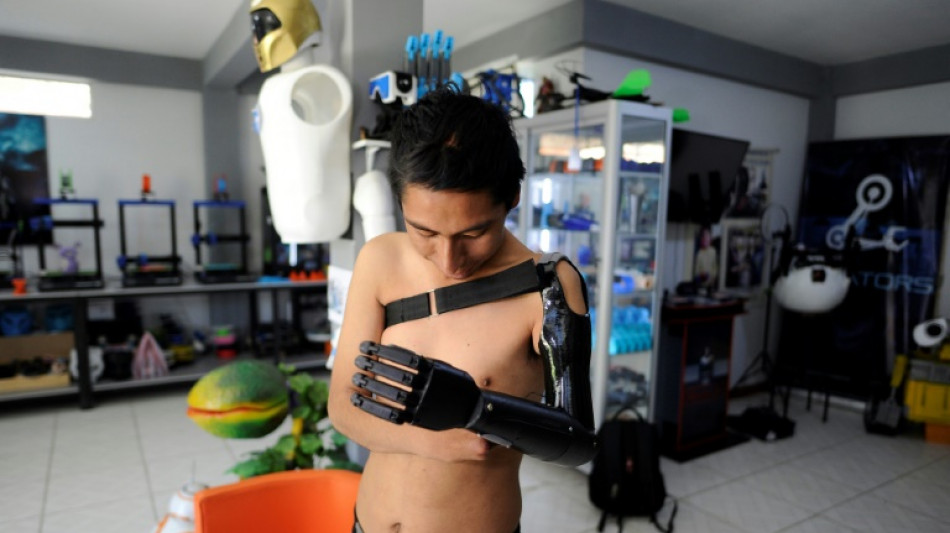
-
 Markets boosted as Trump softens tariff pain for auto firms
Markets boosted as Trump softens tariff pain for auto firms
-
Suryavanshi, 14, dubbed 'next superstar' after batting records tumble

-
 Australian doubles player Purcell accepts 18-month doping ban
Australian doubles player Purcell accepts 18-month doping ban
-
Kashmir attack unites political foes in India, Pakistan
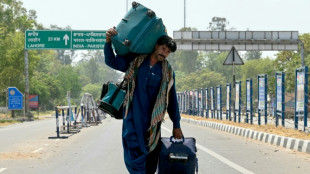
-
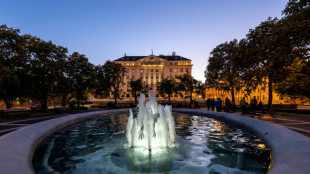 Croatia hotel toasts dizzying century of stars, sovereigns and champagne
Croatia hotel toasts dizzying century of stars, sovereigns and champagne
-
Kenya's desperate need for more snake antivenom
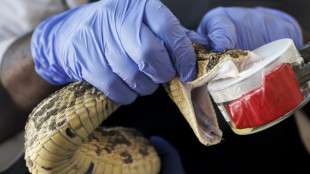
-
 Les Kiss in frame with Wallabies set to name new coach
Les Kiss in frame with Wallabies set to name new coach
-
Cavaliers scorch Heat, Warriors down Rockets in thriller

-
 Opposition wins Trinidad and Tobago election, returning Persad-Bissessar as PM
Opposition wins Trinidad and Tobago election, returning Persad-Bissessar as PM
-
Study sheds light on origin of Australia's odd echidna

-
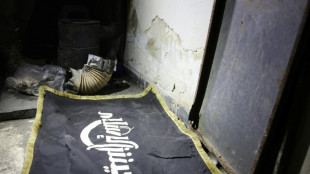 France tries Syrian Islamist rebel ex-spokesman on war crime charges
France tries Syrian Islamist rebel ex-spokesman on war crime charges
-
Trump boasts of 'fun' 100 days, but Americans disenchanted

-
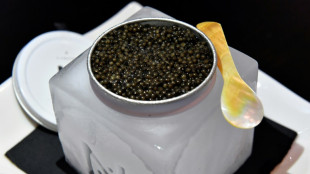 Elitist no more, caviar is turning casual
Elitist no more, caviar is turning casual
-
Amnesty accuses Israel of 'live-streamed genocide' against Gaza Palestinians

-
 Inter slump puts season at risk ahead of daunting Barca trip
Inter slump puts season at risk ahead of daunting Barca trip
-
Power returns to most of Spain, Portugal after massive blackout

-
 'I have hope': Vietnam Babylift survivor's search for birth mother
'I have hope': Vietnam Babylift survivor's search for birth mother
-
US climate assessment thrown into doubt as Trump dismisses authors

-
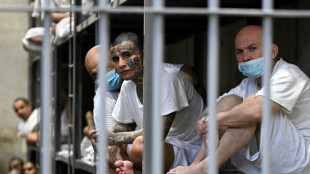 Venezuelan president slams US over little girl's 'abduction'
Venezuelan president slams US over little girl's 'abduction'
-
Hard-right upstarts eye big gains in local UK polls

-
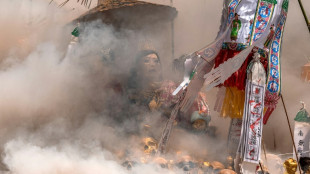 Skulls, smoke and spirits: Thai ceremony for the unclaimed dead
Skulls, smoke and spirits: Thai ceremony for the unclaimed dead
-
Canada's Carney: political newcomer who says he's best in a crisis

-
 Cavaliers scorch Heat to seal series sweep
Cavaliers scorch Heat to seal series sweep
-
Dead salmon create election stink on Australian island
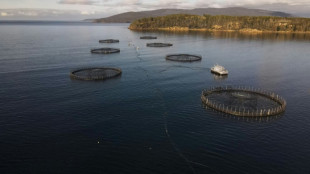
-
 Mic check: Singapore's podcast boom amplifies opposition voices
Mic check: Singapore's podcast boom amplifies opposition voices
-
Markets rise as traders gear up for earnings, key jobs data

-
 Congress passes 'revenge porn' ban, sending it to Trump
Congress passes 'revenge porn' ban, sending it to Trump
-
Spain and Portugal work to restore power after massive blackout

-
 Less-thirsty rice offers hope in drought-stricken Chile
Less-thirsty rice offers hope in drought-stricken Chile
-
Yamal stardust could give Barca edge on Inter Milan

-
 Coca-Cola Europacific Partners plc Announces Q1 Trading Update & Interim Dividend Declaration
Coca-Cola Europacific Partners plc Announces Q1 Trading Update & Interim Dividend Declaration
-
Trump targets US 'sanctuary cities' in migrant crackdown

-
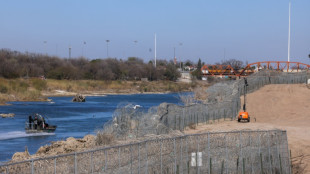 Mexico agrees to send water to US after Trump threatens tariffs
Mexico agrees to send water to US after Trump threatens tariffs
-
Amazon launches first Starlink-rival internet satellites

-
 US lost seven multi-million-dollar drones in Yemen area since March
US lost seven multi-million-dollar drones in Yemen area since March
-
Bucks blow as Lillard suffers torn Achilles: team

-
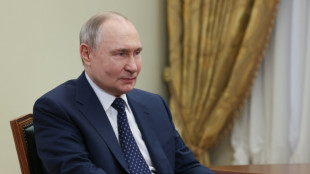 Putin orders three-day truce amid new US warnings
Putin orders three-day truce amid new US warnings
-
Real Madrid's Ancelotti agrees Brazil deal - reports

-
 ChatGPT adds shopping help, intensifying Google rivalry
ChatGPT adds shopping help, intensifying Google rivalry
-
Global stocks mixed amid trade hopes as markets await tech earnings

-
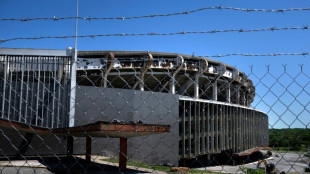 Commanders heading back to D.C. after inking $3.7 bln stadium deal
Commanders heading back to D.C. after inking $3.7 bln stadium deal
-
US warplane falls off aircraft carrier into Red Sea

-
 Feisty Arteta urges Arsenal fans to 'bring boots' to PSG Champions League clash
Feisty Arteta urges Arsenal fans to 'bring boots' to PSG Champions League clash
-
Bucks blow as Lillard suffers ruptured Achilles: reports

-
 No power, no phone, no transport -- Spain in a panic
No power, no phone, no transport -- Spain in a panic
-
US warplane went overboard into Red Sea: Navy

-
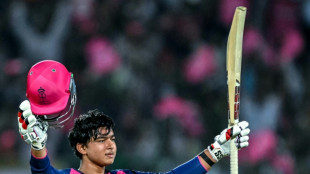 'Like a dream' as IPL's 14-year-old Suryavanshi becomes youngest to hit T20 ton
'Like a dream' as IPL's 14-year-old Suryavanshi becomes youngest to hit T20 ton
-
Luis Enrique says PSG have improved since October Arsenal loss

-
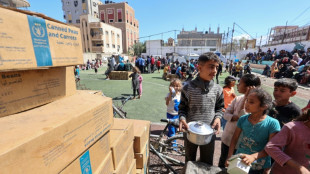 UN food, refugee agencies warn of huge cuts after funding losses
UN food, refugee agencies warn of huge cuts after funding losses
-
Trump trade war dominates BRICS meeting in Brazil


Bolivian toymaker restores limbs, dignity with 3D-printing
As a kid growing up in poverty in rural Bolivia, Roly Mamani built his own toys. Now a 34-year-old engineer, he 3D prints limbs for Indigenous compatriots scarred by life-changing accidents.
Mamani funds the endeavor with the money he makes from selling robotic toys he makes -- his other passion, which, after building his first remote-controlled toy car as a child, he never abandoned.
Surrounded by prostheses, plants and 3D-printed dinosaurs in his study, Mamani pores over an arm he is devising for a boy who lost his due to an electric surge.
It is his purpose, the engineer told AFP, "to improve people's quality of life."
The son of small-scale farmers, Mamani grew up in Achocalla, a community nestled between two lagoons some 15 kilometers (10 miles) north of the capital La Paz, verdant with pasture, vegetables and tubers.
With no money for toys, he started building his own play cars from plastic and cardboard at a young age, upgrading in primary school to a motorized version.
Before entering public university, Mamani worked for two years at an automobile workshop where he was exposed to "the first real machines I ever saw."
Ten years ago, he opened his own workshop in Achocalla to build robotic toys and educational aids.
"You could say I have all the toys I want now," he said.
Then everything changed when he heard about a rural man without hands and thought to himself: "I can make them for him."
In 2018, the toymaker of Achocalla set out to find life-improving solutions for other disfigured Bolivians with his 3D printers.
"Science is like a superpower. Robotics is a trend, but if it does not address important things, it doesn't mean anything," he mused.
- More than 400 made -
Against the background noise of printers at work, Mamani told AFP he can create six units a month.
Since 2018, "we have made more than 400 prostheses," he said.
Half were delivered free of charge or at the cost of production, funded by his robotics sales.
On average, a 3D-printed prosthesis in Bolivia costs about $1,500, more than five times the minimum salary.
A functional prosthesis -- the type that allows certain movements -- can cost as much as $30,000.
Yet the public health system does not cover prosthetics, in a country where some 36,100 people have physical and mobility problems, according to the state-aligned National Committee of People with Disabilities.
Mamani himself chooses the recipients of his donations from the countless requests he receives, including from abroad.
"The people in the most need are those who work precarious jobs without safety, which is why they have these accidents in which they lose a limb," he said.
- 'A blessing' -
One of their beneficiaries is 59-year-old Pablo Matha, who lost his vision and right hand seven years ago in a mining accident involving dynamite.
After that, "I went out every day to ask for some coins (on the street.) That's where my friend Roly and his brother found me," Matha told AFP.
Mamani's brother Juan Carlos is a physiotherapist, who helps with the patients' physical rehabilitation.
Matha said the prosthesis helped him regain his self-respect. He now plays the guitar to earn a living.
He said he used to "feel people looking at me and laughing. But now that I have the prosthesis... sometimes I feel that I am like any ordinary person."
Marco Antonio Nina, 26, was another recipient. As a teenager, working on a masonry project, an electric shock severed his left arm and stunted the right one.
"I like to sing, but without the prosthesis it hurt to hold the microphone... Now with this, it's a blessing," he said.
Mamani wants to use the recognition he has won for his work -- he has been awarded a US robotics scholarship -- to set up a rehabilitation center.
"I want to generate my own technology, I have to improve," he said.
P.M.Smith--AMWN
